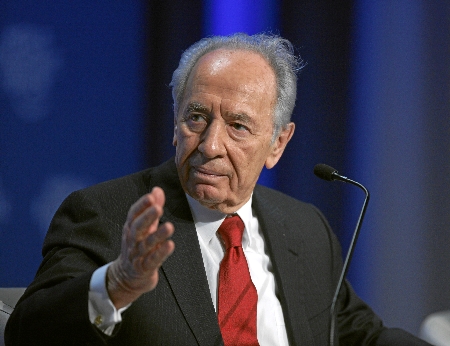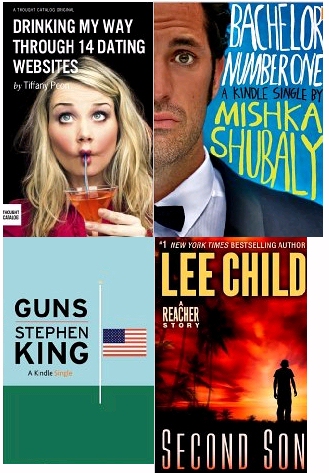
The President of Israel just gave a new interview — and it’s been published exclusively in Amazon’s Kindle Store. It’s available as a “Kindle Single”, but the 42-page interview (priced at 99 cents) also marks a new beginning. Today Amazon announced this was the first in “a new series designed to take full advantage of the Kindle Singles platform by offering major long-form interviews with iconic figures and world leaders.”
tinyurl.com/AmazonKindleSingles
“The Kindle Singles Interview” will be an ongoing series, and according to their editor, it’s Amazon’s attempt to modernize a publishing format that dates back more than 50 years. “In September of 1962, novelist Alex Haley’s conversation with Miles Davis launched the Playboy Interview, and pioneered the idea of a long-form, extended dialogue with the great personalities of our time,” Amazon’s David Blum noted in today’s press release. “We hope to carry forward that tradition, and use the unlimited digital space to engage great artists and thinkers in conversation with skilled writers and interviewers.”
So what happened in this two-hour conversation between political journalist David Samuels and the 89-year-old President of Israel? “In the interview, Peres insists that peace talks arranged by U.S. Secretary of State John Kerry are serious, and he calls for a peaceful resolution to his country’s conflicts with Iran…” according to the Single’s description at Amazon. The interviewer has contributed thoughtful pieces to The New Yorker and The Atlantic, and it looks like he was able to draw out some interesting reflection from Shimon Peres. “‘[H]e also speaks candidly and insightfully about history — from his mentor David Ben Gurion and the Yom Kippur War to the Oslo Peace Accord and the personal psychology of Yasir Arafat. But he is just as engaged by developments in brain science and by social networking technologies, at one point describing Facebook founder Mark Zuckerberg as the most important revolutionary leader in the world today.
” ‘Karl Marx never forecast Zuckerberg,’ Peres said. ‘He made a revolution with a billion people.’ ”
That comment made me remember a 2010 article which noted that the much of the early development for the Kindle actually took place in Israel. Sun Microsystems had a special team in Israel devoted to writing the computer code for handheld devices besides cellphones, and developer Lilach Zipory remembered that in 2006, “Amazon contacted Sun in California and said they wanted a small device that could be used to read e-books.” They ultimately spent several years working with Amazon until eventually they’d developed the perfect device. Amazon ordered 100,000 of them, remembered Eran Vanounou, the group’s development director, “and we were frankly skeptical they would sell all of them.
“But when they sold out a couple of months later, we realized what we were involved with.”
The article had a touching story about what happened the development director flew on an airplane, and spotted many of the other passengers reading on a Kindle. Once he even ended up talking to a passenger, who apparently raved about how much she enjoyed using her Kindle. “I didn’t let on how much we in Oracle Herzliya were a part of her experience,” he’d told the reporters. But finally she told him point blank, “I love my Kindle,” he remembered.
“I could have sworn I felt a tear in my eye.”
